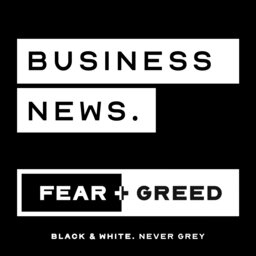Ask Fear & Greed: Why would tariffs cause interest rate cuts?
Listener Linda asks: I have a question about Trump's tariffs and interest rates. I would have thought that tariffs would drive up prices, which would drive up inflation then interest rates would need to rise. But it looks like everyone is saying the RBA will need to reduce rates because of slowing economic growth. I'm confused!
Join Sean Aylmer & Michael Thompson as they answer questions on business, investing, economics, politics and more.
If you have your own question for Ask Fear & Greed, get in touch via our website, LinkedIn, Instagram or Facebook!
 FEAR & GREED | Business News
FEAR & GREED | Business News



